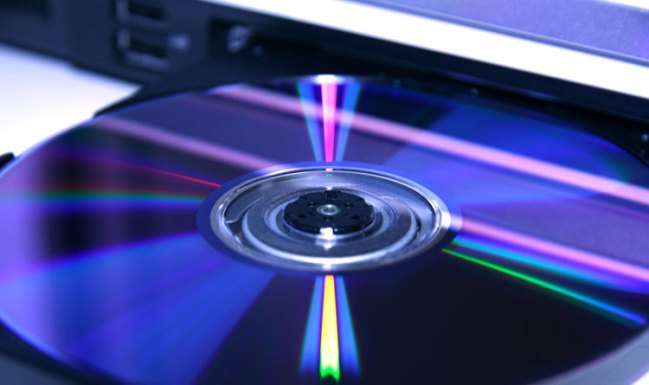
It’s strange to think that there are many of us who only have vague memories of VCRs. DVD players were truly introduced to consumers in the mid-to-late 90s, and quickly became the option du jour for home viewing. There was also a small transition period of time when you would find a family’s DVD player sitting slimly atop its VCR, or maybe you glimpsed the brief shelf life of the two-in-one, VCR-DVD combo. At any rate, DVDs spelled the destruction of VHS, which has taken its place alongside Betamax, typewriters, and Discmans as items made obsolete by their successors.
But VHS experienced general market domination from the mid 70s until the time DVD players came on the scene and before they become incredibly affordable. Now it looks like DVD players are the ones knocking lightly on death’s door: With the saturation of the movie streaming market, not to mention built-in Blu-ray players in laptops and consoles like the PlayStation 3, yesterday’s DVD technology is undoubtedly on its way out.
By the numbers
Buying personal DVDs for keeps has already seen a swift decline. Less than a year ago, Blu-ray and downloads were responsible for a 3.3 decrease in DVD spending over the previous six months, and downloads in general had caused a 7.1 decrease in DVD and Blu-ray purchase over the year. And accordingly, people were found to be 23 percent more willing to spend money on digital downloads and on-demand services. Just last month, media giant Viacom reported sagging numbers due to a significant drop in its DVD sales. Viacom owns Paramount, which released Oscar nominated films The Fighter and True Grit. While both brought in respectable ticket sales, these were “offset by the drop in DVD sales, historically the most lucrative revenue for film studios,” reports the New York Times.
A new wrinkle
Things were looking bad before Facebook and Warner Brothers joined forces to bring movie streaming. Now users can pay for video rentals within the world’s largest social networking site using either Facebook credits (which is a scary and revolutionary concept all on its own) and get their movie fix all without leaving Facebook. The success of this new streaming would be an obvious threat to competitors, namely Netflix. But it’s even more of an indication that DVDs are on their way out.

On-demand services through cable companies were the first step toward eliminating tangible movie rentals, and of course Netflix, Hulu Plus, iTunes, Amazon, and Wal-Mart have all jumped on board. Even Redbox, which seem to depend on the concept of physical rentals, is shifting its business toward digital services. And let’s not forget Netflix began by getting you to receive, consume, and send in those little red envelopes – which is becoming the most unpopular aspect of the site. It’s naturally starting to turn its back on the DVD-by-mail platform and now has an exclusively streaming plan as well. Film companies like Disney are also turning to the digital ways, and CEO Bob Iger recently noted that “People are still buying [discs]. … They’re just not buying as many of them…and the primary reason, I would argue, is that they have other things to do.”
Also not helping the DVD’s cause is Blu-ray. For those beloved, cherished films you can’t imagine not having a tangible copy of (for example, it’s necessary to own the original Star Wars trilogy box set if only to personally admire it and prove to observers that you own the original Star Wars trilogy box set), consumers are more often turning to Blu-ray discs. And if you’re only choosing to buy select titles, why not get versions with superior image and audio quality? We can imagine Blu-ray and DVD will stick around only once 3D TVs finally meet sales expectations, but you’ve got to believe most 3D content will be digitally adapted for streaming soon enough. If social integration into home entertainment is as important as studies and polls would have us believe it is, on-demand services and Blu-ray have got DVDs beat.
Goodbye, DVD
So say your goodbyes and stop building your DVD collection. This is our send-off: You’ve been good to us, and the first time we laid eyes upon your shiny, thin, donut-shape and compared you to the ugly bulk of a video tape was a revelation. We’ll look back fondly on weekend trips to Blockbuster and not so fondly on those phone calls reminding us we still haven’t returned our rentals.


